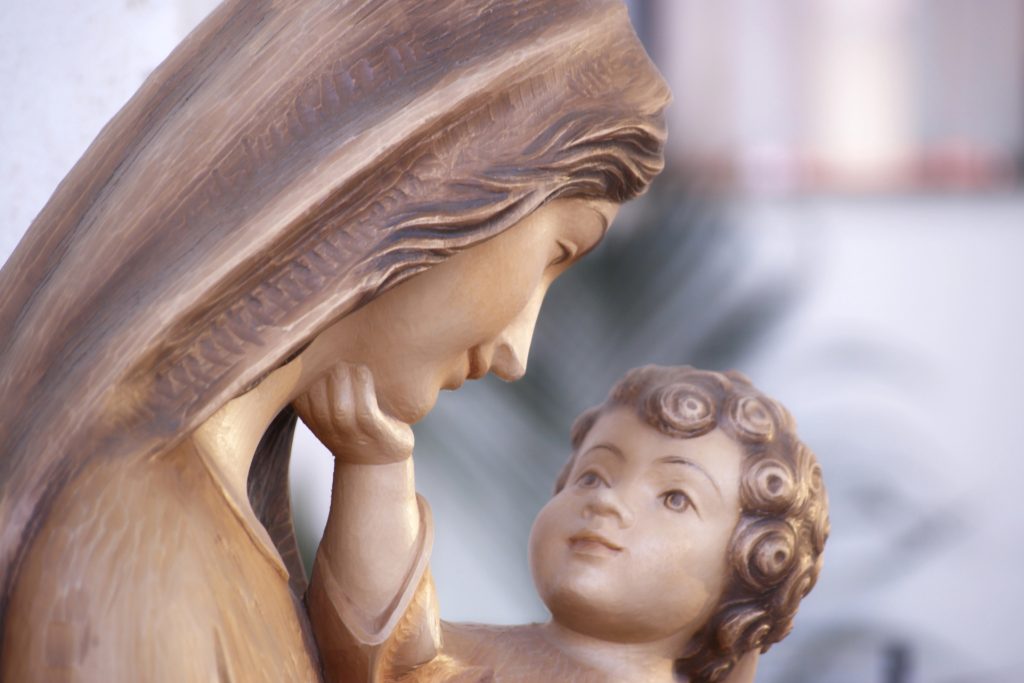A Reflection on the Beginning of a New Year
January 1, 2025
On 1 January 2025, this day will be an opportunity to look back and to look forward…
The Romans chose to name the first month of the year January after the god Janus who is depicted as having two faces, one looking back, the other forward. On 1 January each year, we can take the opportunity to do just that – to look back over the year just completed, with all its ups and downs and to look forward, usually to a brighter year ahead, a new beginning.
New Year 2025 – Pilgrims of Hope
December 31, 2024
As we begin this New Year, we give thank for all the blessings, memories and gifts of 2024. It was year filled with many joys and many challenges as people faced economic hardship, the loss of loved ones, war and climatic changes among other things. There were also moments when we rejoiced in the good news stories of heroic acts, the achievements at the Olympic games, the hope forged through the Church’s synod process and many more treasured moments.
As we step into 2025, we do with hearts full of hope. In the Catholic Church, Pope Francis has announced a Jubilee Year through which we are invited to become Pilgrims of Hope. Throughout the year there will be many events both locally and internationally to ignite the gift of hope among us.
Christmas Message 2024
December 23, 2024As we come to celebrate Christmas this year, we are mindful of the many places in our world troubled by wars, violence, climatic issues, economic disadvantage, and endless challenges. We are invited to walk with Mary and Joseph on the road to the Bethlehem’s of our heart. All was not well in the time of Mary and Joseph as they embraced the call of bringing the Prince of Peace into our world. They did this amid the conflicts of their time, and yet they did this with hope in their hearts that a new era of peace among people would emerge.
Sesquicentenary of the Sisters of Perpetual Adoration: Launch of Heroic Women

Launch by Archbishop Mark Coleridge of Heroic Women: The Sisters of Perpetual Adoration 1874–2014, by Mary Cresp rsj – Brisbane 8 December 2024
In the late afternoon of a hot Sunday, around 70 people attended the launch of Heroic Women: The Sisters of Perpetual Adoration 1874–2014. It was 32 degrees outside, but the heat did not hold back the spirit of joy and thanksgiving for the launch of the book written by Mary Cresp rsj, to commemorate the sesquicentenary of the founding of the Sisters. Mary knew the Sisters well as she had been their Canonical Congregational Leader from 2006 to 2009. The book is published by ATF Press and has over 200 pages with many photographs.
Preparing for Christmas
December 20, 2024
What preparations do you have in place for this upcoming Christmas?
The days leading up to Christmas are often filled with joy and excitement. Conversations revolve around choosing the perfect gifts, planning festive meals, and deciding who will host the celebrations — these are all part of the everyday preparations for that special day.
But for those with faith, Christmas goes a little further.
Catholic Religious welcome Jubilee Year with a Song
December 16, 2024Catholic Religious Australia (CRA) has captured the spirit of the Jubilee Year by releasing a song and music video, titled Journey of Faith – CRA, that expresses the wide range of ministries in which Religious women and men live and share the joy of the Gospel (including some of our Josephites).
Educational Book of the Year Winners Announced
December 12, 2024
Congratulations to Sr Mary-Ann Casanova PhD whose book, We Care for God’s Earth, has been jointly selected as Garratt Publishing’s Educational Book of the Year!
Sr Mary-Ann shares the award with Kathryn Robinson and her book, Know Your Bible.
We Care for God’s Earth and Know your Bible are both part of Garratt Publishing’s Living Your Faith series. The publishers said it was “impossible to choose one above the other. Therefore, the winner is actually two books!”.
A Reflection for International Migrants Day 2024
December 8, 2024
Honouring the Contributions and Upholding the Rights of People who are Migrants: A Reflection for International Migrants Day 2024
Every year on 18 December, the world comes together to observe International Migrants Day – a day to celebrate the incredible contributions migrants make to societies across the globe and to reaffirm our collective responsibility to respect and protect their human rights. As we commemorate this important occasion in 2024, we reflect not only on the progress made but also on the urgent work still needed to ensure that people who are migrants can live with dignity and opportunity wherever they are.
